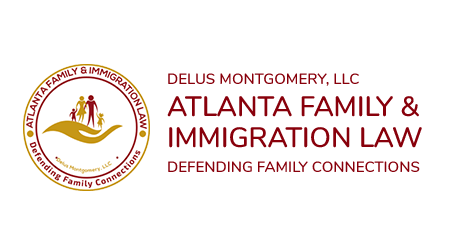Employment-Based Immigration Law Explained: Visas, Green Cards & More
Employment-based immigration rules are critical in shaping the US' body of workers panorama. Through many visa sorts and routes, this felony machine lets overseas people live and work in the country. Employers seeking talent and individuals looking to advance their careers in the United States must first understand this immigration field. The subtleties of employment-based immigration can be difficult; therefore, cooperating with an Atlanta immigration lawyer familiar with the latest laws and procedures is vital.
The Role of Employers in the Immigration Process
The employment-based immigration manner depends on many employers. Often, they may be responsible for sponsoring overseas individuals, which includes filing applications and demonstrating the need for specific skills. This sponsorship ensures adherence to immigration rules and permits groups to lease their desired expertise. An Atlanta immigration legal professional can help companies navigate the prison duties associated with sponsorship, thereby streamlining the technique and enhancing its effectiveness. Understanding their duties helps companies to avoid typical traps and support an effective recruiting plan.
Significance of Employment-Based Immigration
One cannot understate the importance of employment-based immigration legislation. It fosters innovation and diversity in the workplace by allowing competent people worldwide to contribute to the U.S. economy. This legislation enables businesses to fill important skill shortages and maintain competitiveness using qualified people's entrance. It also promotes the idea of a varied workforce, enhancing the country's cultural fabric. Working with an immigration law firm may significantly improve the likelihood of a successful application procedure.
Categories of Work Visas
Under employment-based immigration rules, there are several types of work visas available. Among the most widely widespread are H-1B visas for expert vocations, L-1 visas for intra-employer transfers, and O-1 visas for people with first-rate expertise. Every visa class has certain qualifying criteria, utility techniques, and regulations. The H-1B visa, for instance, has an annual restriction that affects its availability, so timely submitting of packages is important for candidates. Dealing with an Atlanta immigration lawyer can help navigate these intricacies and meet each need.
Pathways to Permanent Residency
Apart from work visas, employment-based immigration might result in permanent residence via the green card procedure. Among the several options for getting a green card are the EB-1 category for priority workers, EB-2 for professionals with advanced degrees, and EB-3 for skilled workers. Every category requires a labor certification procedure and proof of the applicant's credentials. Based on personal situation and professional objectives, an immigration law company may help identify the most appropriate route.
The Application Process and Its Challenges
Getting a visa or work permit may be time-consuming and requires close attention to detail. Applicants must provide plenty of paperwork, including evidence of a job, educational credentials, and perhaps even personal statements. Errors or oversights might cause rejections or delays, underlining the need for a professional Atlanta immigration attorney beside you. Ensuring all papers are thorough and correct may improve the chances of a good result.
Keeping Up with Legal Changes
Furthermore, changes in policy and economic circumstances drive the field of employment-based immigration law to adapt continually. Recent events might include modifications to visa quotas, changes in labor market needs, and new rules impacting eligibility requirements. Both companies and workers must be aware of these developments. Talking to an immigration law company might provide useful information and news to assist people in adjusting to the changing immigration scene.
Conclusion
Fostering a various and skilled workforce within the United States relies upon employment-based total immigration policies. It lets organizations gather the desired capabilities and offers opportunities for talented individuals to contribute to the financial system. Anyone navigating this difficult path would greatly benefit from working with an Atlanta immigration attorney. Our staff at Atlanta Family & Immigration Law is committed to helping you understand your options and achieve your immigration goals.





